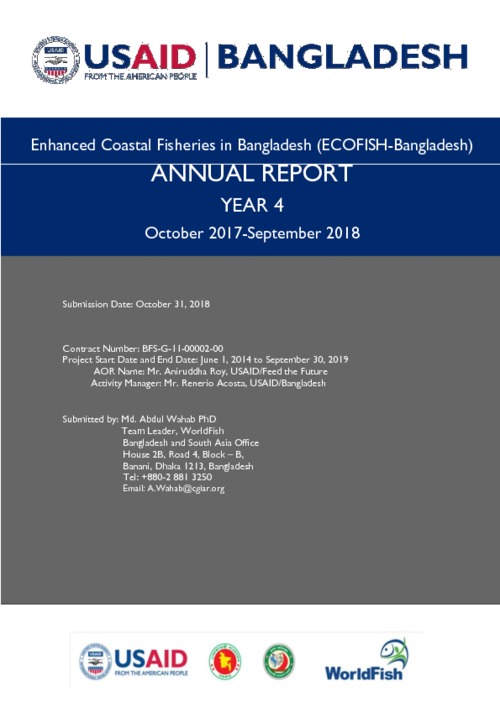Dietary administration of probiotics modulates non-specific immunity and gut microbiota of Nile tilapia (Oreochromis niloticus) cultured in low input ponds

Citation
Opiyo, M.A. et al. (2019). Dietary administration of probiotics modulates non-specific immunity and gut microbiota of Nile tilapia (Oreochromis niloticus) cultured in low input ponds. International Journal of Veterinary Science and Medicine, 7(1): 1-9
Poor culture conditions in low input ponds make fish highly susceptible to infectious pathogens which lead to diseases and mortalities yet the effects of probiotics on immunity, gut microbiota and microbiological quality of fish in low input ponds are unknown. Nile tilapia, Oreochromis niloticus fingerlings (40 g) were randomly stocked at 50 fish m-3 in 1.25 m3 cages in low input ponds. The fish were fed on diets supplemented with either Saccharomyces cerevisiae (1 × 1010 CFU g-1) or Bacillus subtilis (1 × 109 CFU g-1) at six levels: Diet 0 (No probiotic); S. cerevisiae at 2 g kg-1 (Diet 1); 4 g kg-1 (Diet 2) and 6 g kg-1 (Diet 3) and B. subtilis at 5 g kg-1 (Diet 4); 10 g kg-1 (Diet 5) and 15 g kg-1 (Diet 6) for 180 days. Results indicate that hemato-immunological parameters (hemoglobin (Hb), red blood cells (RBC), white blood cells (WBC) serum protein, albumin, globulin and lysozyme activity) were significantly higher in fish fed on probiotic treated diets compared to the control (P < 0.05). On the contrary, fish fed on Diet 6 presented significantly similar Hb and globulin values compared to the control (P > 0.05). Additionally, fish fed on probiotic treated diets retained the probiotics in their guts and lower microbial load was realized in their muscle (P < 0.05). In conclusion, B. subtilis and S. cerevisiae supplementation in diets of Nile tilapia reared in low input ponds improves immunity, manipulates gut microbiota and enhances fish flesh quality.
Permalink
Date Available
Type
Publisher
Countries
ISSN
2314-4580
Copyright
CC BY 4.0
Research Themes
Topics
Language